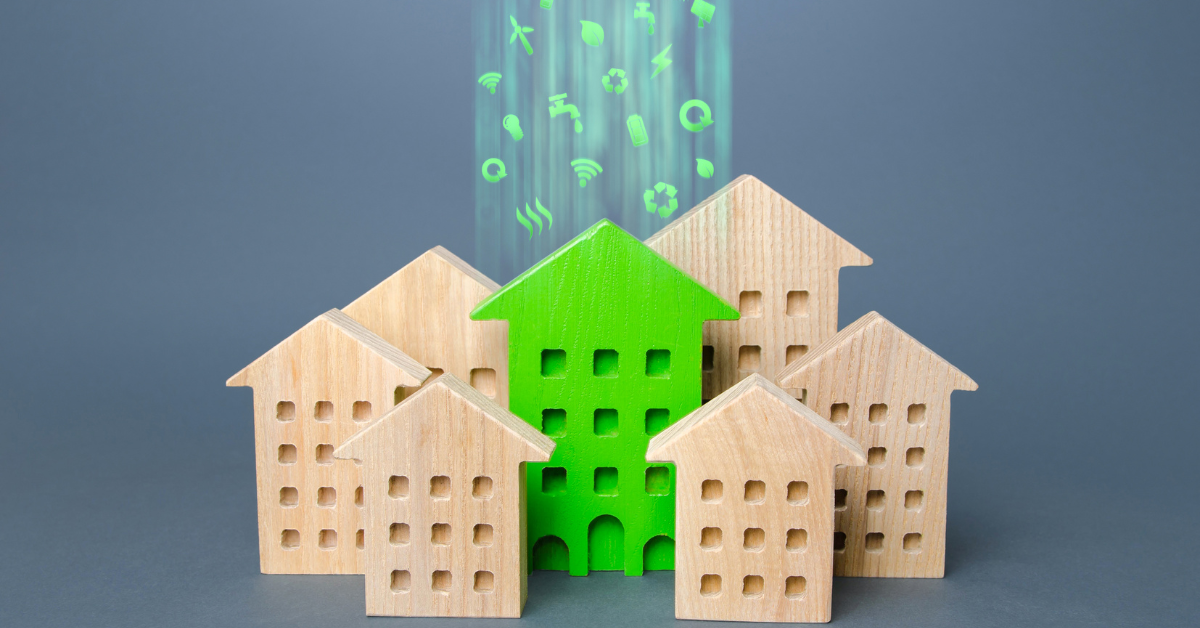News
Navigating Change: Scotland's Section 6 Update
Navigating Change: Scotland's Section 6 Update
Section 6 of the Scottish Building Standards Technical Handbooks is set to be updated from April 2024. The change is being named ‘The New Build Heat Standard’ (NBHS) and will affect the type of heating system that new build homes and buildings will be allowed to use. Any project where a building warrant is submitted from 1st April 2024 will be subject to the new regulations. So what does this mean for us, and what does it mean for you?
Heating Scotland’s homes and buildings is one of the biggest contributors of Scotland’s carbon emissions, with around 22%* of greenhouse gas emissions coming from our homes and workplaces, and the equivalent of 73.9% of Scotland’s total greenhouse gas emissions are associated with energy (i.e. the electricity, heat, transport and industry sectors)** The NBHS will help ensure new buildings will not contribute to emissions. Meaning people who buy new homes will know its future-proofed against the need to switch heating systems in the future.
NBHS and Emission-Free New Buildings
NBHS is part of the Scottish Government’s wider Heat in Buildings Strategy, which aims for zero emissions buildings by 2045
The use of direct emission (or polluting) heating systems such as gas/oil boilers and biofuels will be banned, and alternative systems such as heat pumps and heat networks will be required instead. However, it is important to note the Build Heat Standard (NBHS) will not apply to emergency heating systems, or systems solely for frost protection. At Wallace Whittle we see this as a step in the right direction in terms of sustainability and a positive step forward industry wide.
Neilston Learning Campus does not use any on-site fossil fuels and is 100% electric.
Transition to Sustainable Alternatives
The Future Homes Building Standard has been created with the aim of decarbonising new residential buildings through enhancements in heating and hot water systems. This goal can be achieved by replacing current technologies with low-carbon alternatives.
Notably, the replacement of outdated and less efficient counterparts with high-quality building fabric and the adoption of low-carbon heating via heat pumps. The implementation of these changes, combined with supplementary regulations addressing existing homes, is expected to play a significant role in reducing the UK’s carbon emissions, contributing to the achievement of our 2050 net zero target.
Maybole Community Campus does not use any on-site fossil fuels and is 100% electric, with all-electric heating, hot water and heat recovery.
Wallace Whittle's Perspective
The landscape of sustainability is constantly evolving, and we see each challenge as an opportunity for growth and innovation. At Wallace Whittle we are used to navigating the complexities of change, but we take pride in actively shaping a future where our commitment to sustainability is not just a professional obligation but a shared ethos that drives positive impact.
Sustainability is central to everything we do. We have been strongly advocating for these measures for years and we are delighted that the rest of the industry is moving in the right direction. We will continue to work with our clients to deliver the exemplary quality of service they have come to expect from us. We have a proven track record of delivering buildings which are best in class with respect to energy performance. Creating sustainable environments is crucial to our approach as a business. We know that we can only fulfill our purpose as designers if we can deliver sustainable and environmentally conscious buildings that support the wellbeing of all its occupants.
At Wallace Whittle, we’re prepared for the New Build Heat Standard to come in in April in Scotland – We’d love to bring our expertise to your next project, get in touch with our Sustainability team today by emailing [email protected] or head to our LinkedIn to find out more about what we do.
* Greenhouse Gas Emissions (2023) Scottish Energy Statistics Hub. Available at: https://scotland.shinyapps.io/Energy/ (Accessed: 16 February 2024).
** Office for National Statistics. (2022) Climate change insights, families and households, UK: August 2022, Climate change insights, families and households, UK – Office for National Statistics. Available






